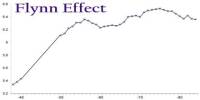Intrusive Thought
Intrusive thoughts are unwanted thoughts, impulses or “mental images”. These thoughts may surround the fear of committing an act they consider to be harmful, violent, immoral, sexually inappropriate, or sacrilegious. There is no intent to act on these thoughts and these thoughts bring no pleasure, causing extreme distress. However, the true definition is that intrusive thoughts are “unplanned”. Most people can dismiss the thoughts and write them off as just weird or no big deal. Some people with obsessive-compulsive disorder (OCD) can’t shake the thoughts and assume they mean something more.
Intrusive thoughts may also be associated with episodic memory, unwanted worries or memories from OCD, posttraumatic stress disorder, other anxiety disorders, eating disorders, or psychosis. Intrusive thoughts, urges, and images are of inappropriate things at inappropriate times, and generally have aggressive, sexual, or blasphemous themes.
Examples of intrusive thoughts:
- Intrusive thoughts or mental images of harming/killing one’s spouse, parent, child, or self
- Repeatedly worrying that one has or will physically assault another person
- Repetitive thoughts that one has said or written something inappropriate
- Mental images or thoughts that one considers sacrilegious or blasphemous
Some intrusive thoughts fall under the category of “taboo” because they include upsetting sexual, violent, and blasphemous thoughts. People suffering from these intrusive thoughts often say they focus on what they cherish the most in life: children, pets, family, religious faith, and so on.
Causes and Treatment of Intrusive Thoughts: People are not really sure why intrusive thoughts suddenly pop into their heads, but some psychologists have theories.
Psychologist Lynn Somerstein (2016) suggests that perhaps recurring or frequent intrusive thoughts are a sign that there is something difficult or something going wrong in a person’s life. Perhaps they are struggling with relationship problems, stress at work, or frustration with parenting and trying to keep it from bubbling over, except, instead of the problem staying politely buried, it finds other ways to work its way up to the surface.
Anxiety and intrusive thought experts Dr. Martin Seif and Dr. Sally Winston have a particularly interesting way of describing what they believe causes unwanted and intrusive thoughts:
“Our brains sometimes create junk thoughts, and these thoughts are just part of the flotsam and jetsam of our stream of consciousness. Junk thoughts are meaningless. If you don’t pay attention or get involved with them, they dissipate and get washed away in the flow of consciousness” (2018).
Treatment for intrusive thoughts is similar to treatment for OCD. Exposure and response prevention therapy also referred to as habituation or desensitization is useful in treating intrusive thoughts. Mild cases can also be treated with cognitive behavioral therapy, which helps patients identify and manage the unwanted thoughts.
All intrusive thoughts are normal, and no matter their theme, they can be treated with different forms of cognitive-behavioral therapy (CBT). Exposure and response prevention therapy (ERP) is the most highly recommended option for people with OCD.
It’s normal to hope treatment means intrusive thoughts will disappear, but treatment should equip OCD sufferers with techniques to address any intrusive thought that may arise. People’s anxiety won’t fully go away, but they will be better prepared to cope with it and live a happy, healthy life.
Information Source:
















